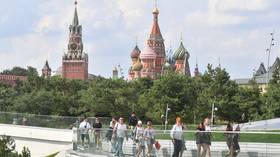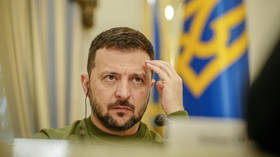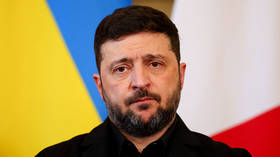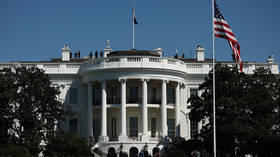Russian government lists threats to country’s youth

Cosmopolitanism and individualism among young people could become an obstacle to Russia’s development and economic growth, Russian authorities have said.
The warning was made in the Strategy for Russia’s youth policy until 2030, which was approved by the government in Moscow on Thursday. The document was prepared at the behest of Russian President Vladimir Putin.
”There are almost 38 million people aged between 14 and 35 in Russia. Taking care of their future is... important for ensuring national security. This would require joint efforts from the government bodies and non-profit organizations and, most importantly, involve young men and women in the decision-making,” Russian Prime Minister Mikhail Mishustin said during a cabinet meeting.
In the strategy document, it was pointed out that the functioning of Russia as a “powerful, economically developed state” necessitates a population that is “nationally oriented and supports traditional values.” This should be achieved through the “harmonious development of young people and their creative potential,” it read.
Due to its key role in the society, the younger generation has been selected as “the main target of ideological intervention carried out from the outside in order to weaken the Russian state,” the paper stressed.
One of the major threats to the country’s youths it named is “the imposition of the Western lifestyle and consumption habits,” which includes extraterritorial, apolitical views and sexual deviations.
The moral system of the younger generation in Russia “reflects value shifts from collectivism to individualism and from statism to cosmopolitanism over the past 30 years,” it said.
The document noted that “individualistic values often lead to difficulties for young people in forming relationships in the family, with friends and at work.” It singled out the development of collectivist values within the age group as an important task for the government over the next six years.
Some of the other dangers to young people mentioned in the strategy are a weakening connection between generations, the degradation of traditional spiritual and moral values, legal nihilism, insufficient involvement in socially useful activities, and an increasing number of crimes committed by younger people, including with the use of information and communications technologies.
According to the document, the key areas of Russia’s youth policy until 2030 would be supporting the volunteer movement and patriotic organizations, introducing additional opportunities for studying and advanced training, expanding access to quality online content as part of cultural and educational initiatives, promoting the Russian language as a basis for cooperation on international platforms, and creating additional infrastructure for recreation and sports.













